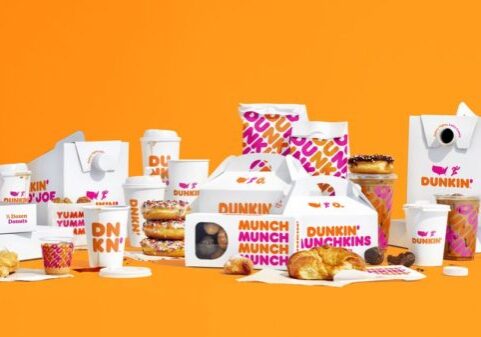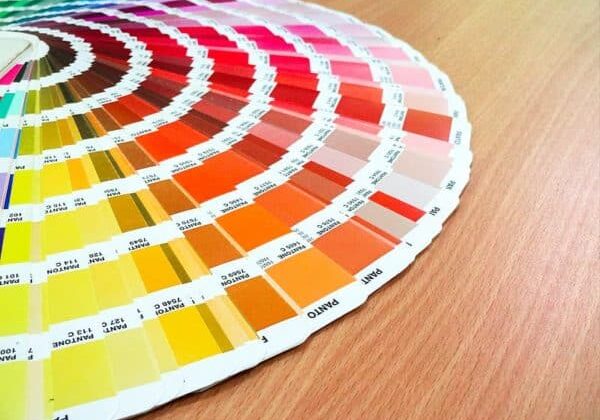Flexographic printing is a form of direct relief printing that is characterized by the use of flexible printing plates. In the past, these printing plates were always made of rubber, whereas today, flexible photopolymer printing plates might also be used. These plates have a slightly raised image of the content on them, they’re inked, and are rotated on drums at high speeds to transfer the image onto the print substrate. Each color of ink desired requires a different printing plate. For instance, traditional process printing requires a plate for each ink: cyan, magenta, yellow and black — or CMYK.
Flexography is adaptive and can accommodate a wide range of inks, like UV or water-based – and may be used on a huge range of media including absorbent substrates like paper, fabric, or cardboard, as well as non-absorbent substrates like plastic, cellophane and metallic film. It is a popular printing technique when versatility, large orders, or long print runs are desired. It’s also great for things like wrapping paper or wallpaper!

When Should You Utilize Digital Printing?
Digital printing is probably what most people are most familiar with, since you probably have one at home. Inkjet printers and laser printers are found in many homes, schools, and offices. Of course, these are generally consumer-level digital printers. For digital printing, images are sent directly to the printer using digital files, as opposed to…

The Future of Branding: How Technology is Shaping the Industry
Executive Summary As we move further into the digital age, technology continues to revolutionize the branding landscape. This white paper will examine the key technological developments shaping the future of branding and discuss how businesses can leverage these advancements to create stronger brand identities, enhance customer experiences, and maintain a competitive edge. Topics covered include…

How Dunkin’ Successfully Rebranded in 2019
The history of Dunkin’ began with a restaurant called “Open Kettle” in Massachusetts, in 1948. Founder William Rosenberg served donuts for five cents and premium cups of coffee for ten cents. Rosenberg renamed his restaurant “Dunkin’ Donuts” in 1950, and franchised his brand in 1955. Since 1950, the number of Dunkin’ restaurants has increased to…

5 Ways a Well-Built Brand Makes Your Company Money
We all know standing out in a crowded market is essential for success. One way to do that is by creating and maintaining a well-built brand. After all, your brand is more than just a logo and a tagline, it’s the image and perception that customers have of your business. A strong brand sets you…

How to Create a Brand
Building a strong brand is essential for any business looking to stand out in today’s highly competitive market. A successful branding strategy can help you connect with your target audience, build trust, and differentiate your business from your competitors. Here are some tips on how to build a strong brand for your business: Determine your…

What Makes a Logo Successful?
A logo serves to represent your company through a visual image that can be easily understood and recognized. Logos generally involve symbols, stylized text, or both. A good logo should create memorable impressions on your target audience, and set your company apart from your competitors. So, what makes a logo successful? A successful logo will…

Why Colors Matter
Choosing the right colors for your brand is a crucial step in building a strong and effective visual identity. While color preference is subjective, certain colors are associated with specific traits or emotions that can influence how your brand is perceived by your target audiences. Understanding color psychology and its impact on branding can help…

6 Reasons why a Strong Brand is Important for your Small Business
Building a strong brand is a critical component of any successful business. A well-crafted brand strategy not only helps businesses establish recognition and build trust with their customers, but also supports advertising efforts and inspires employees. Furthermore, strong branding can increase a business’s financial value and generate new business opportunities through word-of-mouth referrals. As the…

